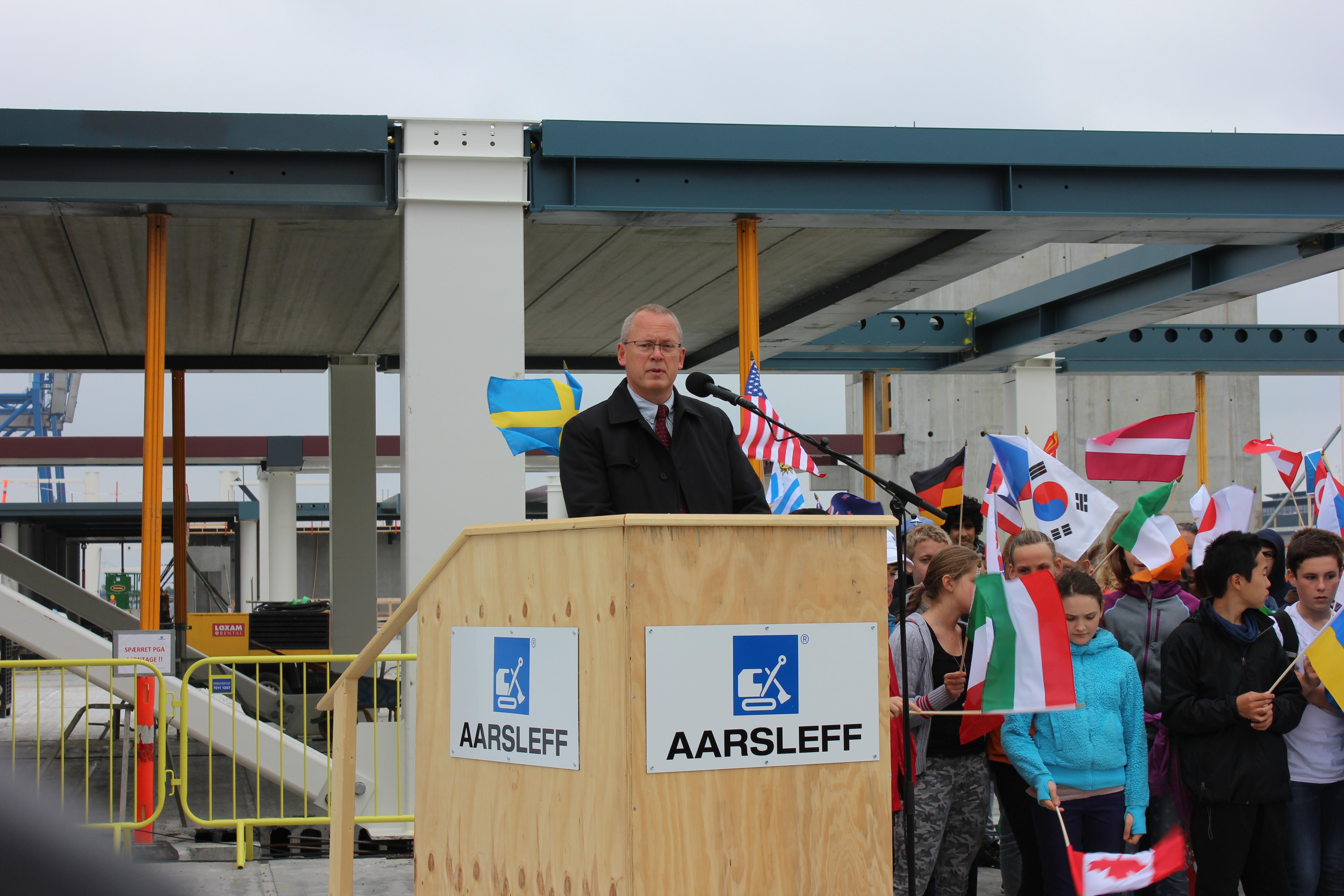Copenhagen International School (CIS) last week took a big step towards creating the school of the future.
In a solemn ceremony, Frank Jensen, the lord mayor of Copenhagen, together with John Bo Jacobsen, the chairman of the Property Fund CIS, and Brit van Ooijen, the chairman of CIS, revealed the innovative solar panel facade of the school’s new campus.
“The school is in itself so unique and attractive that we hope to inspire other educational institutions both in Denmark and abroad,” explained Jacobsen.
Besides the use of solar power, an effective use of daylight and cooling systems make the new campus an outstanding project in terms of sustainability.
“The goal of the school is to enhance students’ competences in an international environment so that they become responsible citizens of the world with a focus on sustainability,” said van Ooijen.

For the community as well
Located in the up-and-coming area of Nordhavn, the 25,000 sqm large campus area was built to be fully self-sustainable and carbon-neutral.
By developing innovative ways to use light, heat and water it will be smarter and create a space in which students, as well as the community of Nordhavn, can connect, interact and learn.
The ground floor will include a theatre, restaurant and numerous sports facilities that can be used by the whole Nordhavn community, which by that time will have grown to about 40,000 people.

Opening in 2017
Anders Smith, who is on the board of the Property Fund CIS, was responsible for developing a space for students to learn in the most effective way. His vision for the campus was inspired by the fact that there is a need for “different spaces for different learning”.
By carefully considering crucial factors like oxygen, daylight and spaces for students to interact, the new campus has an extensive approach to students’ needs.
The buildings’ profile will also fit in the way Copenhagen as a whole is moving to become the first carbon-neutral capital by 2025.
The new CIS campus is scheduled to open in January 2017.















